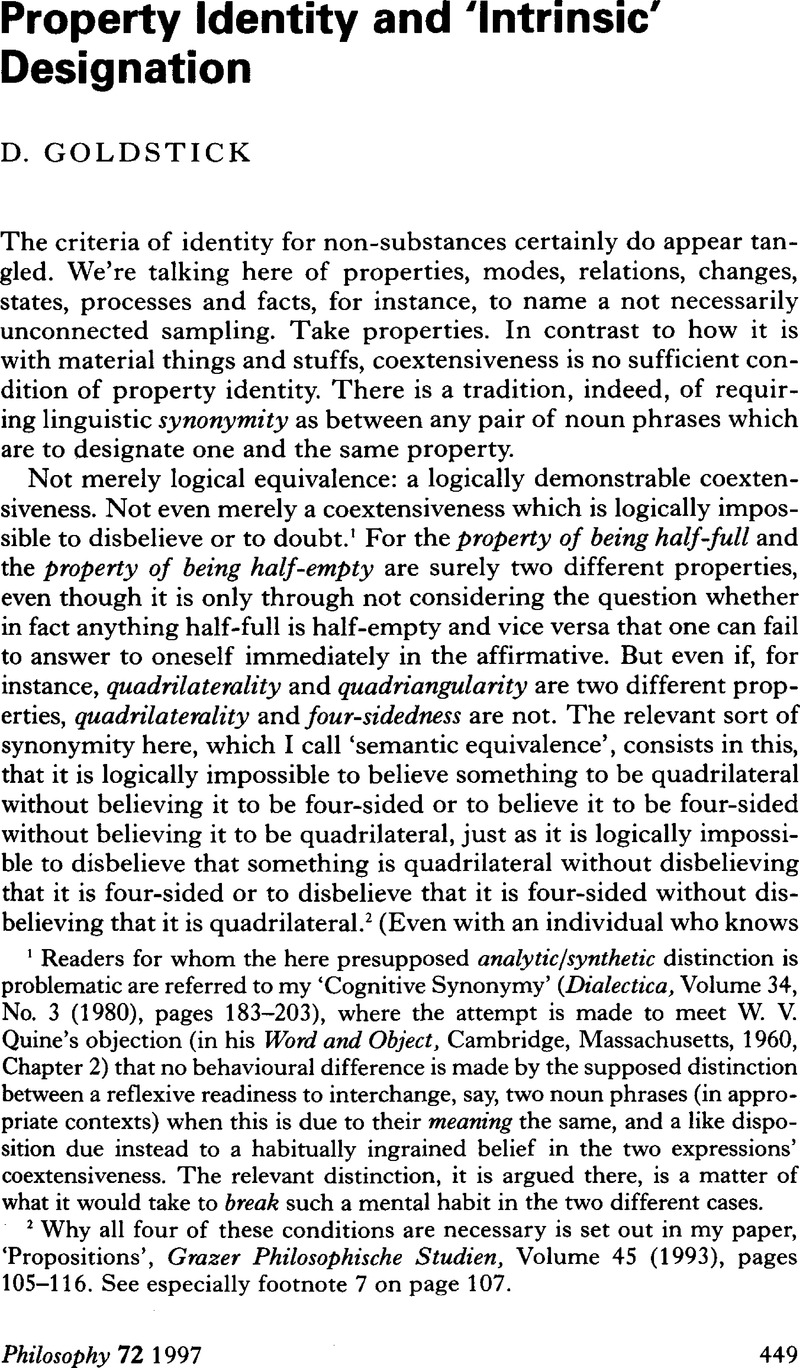Article contents
Property Identity and ‘Intrinsic’ Designation
Published online by Cambridge University Press: 30 January 2009
Abstract

- Type
- Discussion
- Information
- Copyright
- Copyright © The Royal Institute of Philosophy 1997
References
1 Readers for whom the here presupposed analytic/synthetic distinction is problematic are referred to my ‘Cognitive Synonymy’Google Scholar (Dialectica, Volume 34, No. 3 (1980), pages 183–203)CrossRefGoogle Scholar, where the attempt is made to meet Quine's, W. V. objection (in his Word and Object, Cambridge, Massachusetts, 1960, Chapter 2) that no behavioural difference is made by the supposed distinction between a reflexive readiness to interchangeGoogle Scholar, say, two noun phrases (in appropriate contexts) when this is due to their meaning the same, and a like disposition due instead to a habitually ingrained belief in the two expressions' coextensiveness. The relevant distinction, it is argued there, is a matter of what it would take to break such a mental habit in the two different cases.Google Scholar
2 Why all four of these conditions are necessary is set out in my paper, ‘Propositions’, Grazer Philosophische Studien, Volume 45 (1993), pages 105–116. See especially footnote 7 on page 107.CrossRefGoogle Scholar
3 Frank, Jackson, ‘On Property Identity’, Philosophia, Volume 11, Nos. 3-4 (07 1982), page 297.Google Scholar
4 To call it a logical necessity that there is such a property as duality or such a natural number as two will not have to contradict the nominalist denial that anything exists over and above concreta, for if nominalism is true it will simply follow that the existence of anything abstract is ‘reducible’ to concrete existences.Google Scholar
- 1
- Cited by




